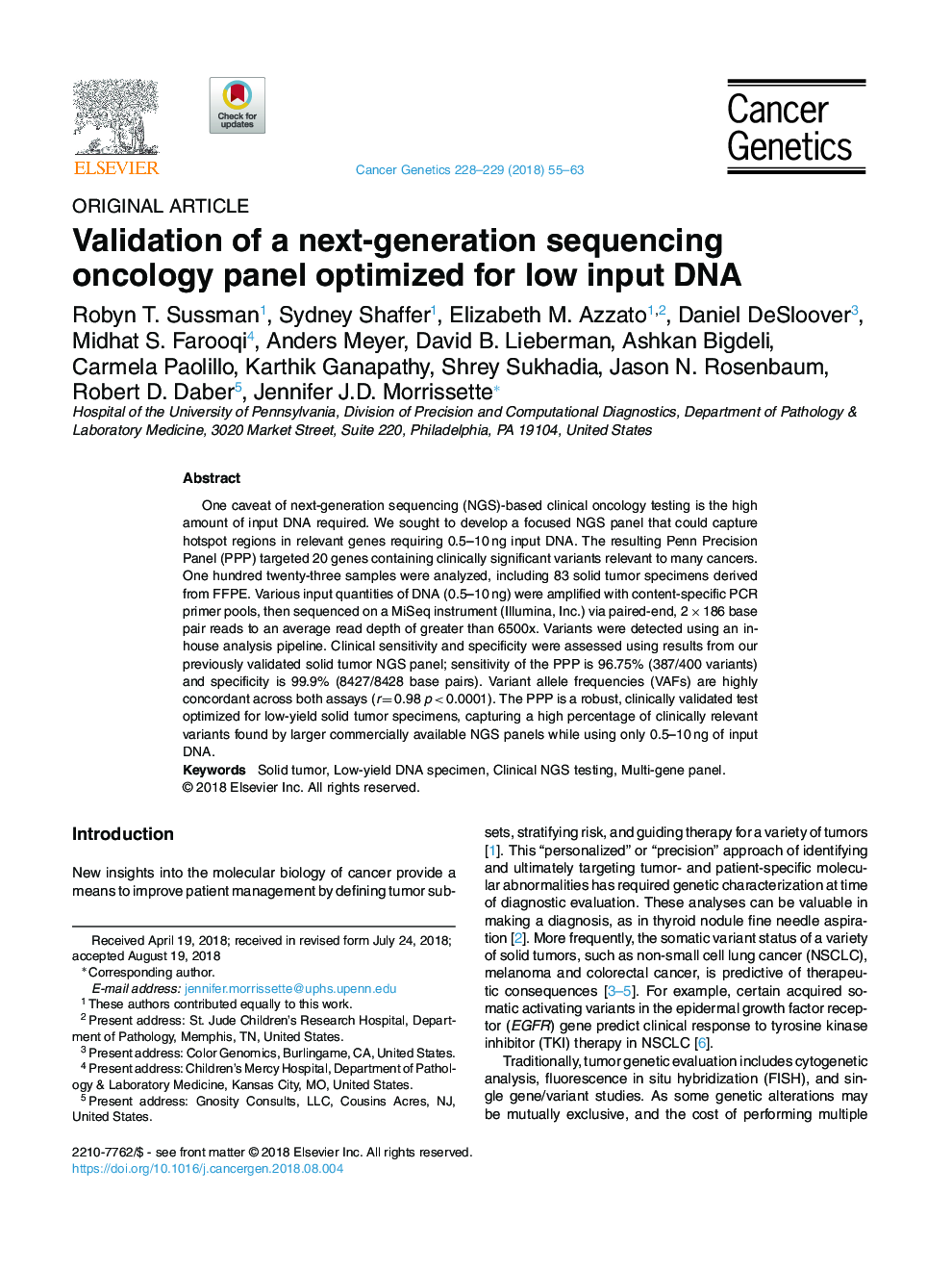| Article ID | Journal | Published Year | Pages | File Type |
|---|---|---|---|---|
| 11007685 | Cancer Genetics | 2018 | 9 Pages |
Abstract
One caveat of next-generation sequencing (NGS)-based clinical oncology testing is the high amount of input DNA required. We sought to develop a focused NGS panel that could capture hotspot regions in relevant genes requiring 0.5-10â¯ng input DNA. The resulting Penn Precision Panel (PPP) targeted 20 genes containing clinically significant variants relevant to many cancers. One hundred twenty-three samples were analyzed, including 83 solid tumor specimens derived from FFPE. Various input quantities of DNA (0.5-10â¯ng) were amplified with content-specific PCR primer pools, then sequenced on a MiSeq instrument (Illumina, Inc.) via paired-end, 2â¯Ãâ¯186 base pair reads to an average read depth of greater than 6500x. Variants were detected using an in-house analysis pipeline. Clinical sensitivity and specificity were assessed using results from our previously validated solid tumor NGS panel; sensitivity of the PPP is 96.75% (387/400 variants) and specificity is 99.9% (8427/8428 base pairs). Variant allele frequencies (VAFs) are highly concordant across both assays (râ¯=â¯0.98 pâ¯<â¯0.0001). The PPP is a robust, clinically validated test optimized for low-yield solid tumor specimens, capturing a high percentage of clinically relevant variants found by larger commercially available NGS panels while using only 0.5-10â¯ng of input DNA.
Keywords
Related Topics
Life Sciences
Biochemistry, Genetics and Molecular Biology
Cancer Research
Authors
Robyn T. Sussman, Sydney Shaffer, Elizabeth M. Azzato, Daniel DeSloover, Midhat S. Farooqi, Anders Meyer, David B. Lieberman, Ashkan Bigdeli, Carmela Paolillo, Karthik Ganapathy, Shrey Sukhadia, Jason N. Rosenbaum, Robert D. Daber,
